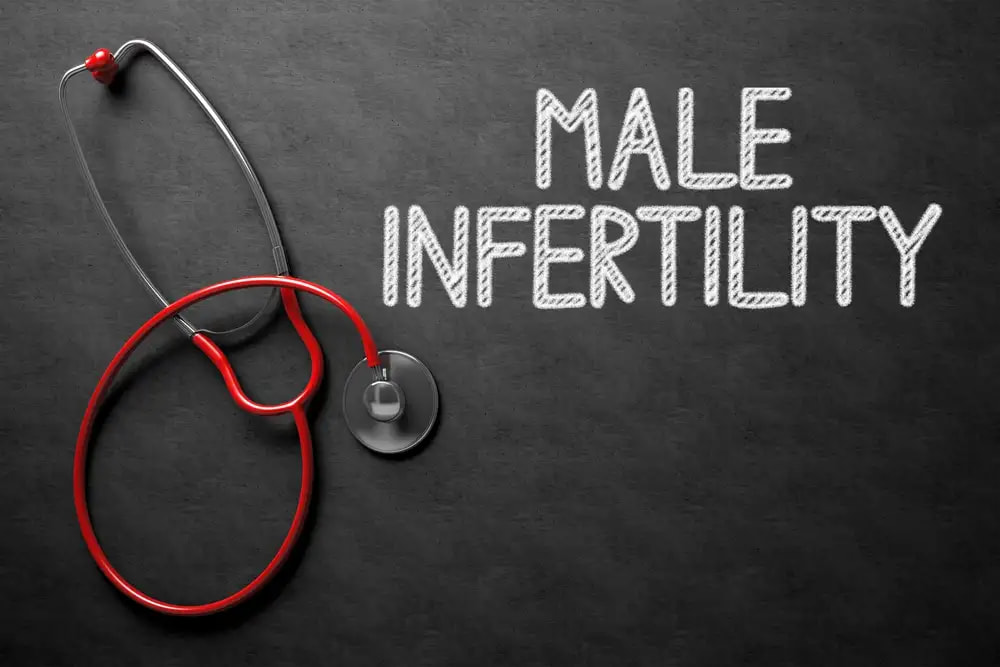- Home

- Male Infertility

- Male Infertility: Understanding Causes, Symptoms, and Treatment Options
In this Article
Male Infertility
Male Infertility: Understanding Causes, Symptoms, and Treatment Options
Updated on 3 November 2023



Medically Reviewed by
Dr. Vani Puri
Obstetrician- Gynecologist, Infertility Specialist - MBBS| DGO, DNB
View Profile

Infertility affects both men and women, but when it comes to male infertility, there are several factors at play. From age and lifestyle choices to medical conditions and genetic diseases, understanding the causes and symptoms of male infertility is crucial for those struggling to conceive. In this comprehensive article, we delve into the various factors that contribute to male infertility and explore the available treatment options.
What is Male Infertility?
Male infertility is a condition that affects a significant number of men worldwide. It is characterized by the inability to achieve pregnancy after a year of regular unprotected intercourse. While infertility is often associated with women, it is important to recognize that men are equally susceptible to fertility issues. Understanding the causes, symptoms, and treatment options for male infertility can help couples navigate their fertility journey with greater knowledge and confidence.
Male Infertility Symptoms
Recognizing the signs of male infertility is crucial in seeking timely medical intervention. While the absence of these symptoms does not guarantee fertility, being aware of them can prompt individuals to consult a healthcare professional. Some common symptoms of male infertility include:
1. Erectile dysfunction
Difficulty achieving or maintaining an erection is often a tell-tale sign of fertility problem in men.
2. Low sperm count
A low sperm count can significantly reduce the chances of fertilization.
3. Abnormal sperm shape
Misshapen sperm may struggle to reach and penetrate the egg.
4. Reduced sperm motility
Poor sperm movement can impede their journey to the egg.
5. Pain or swelling in the testicles
Swelling in and around the testicles or testicular pain may indicate an underlying issue affecting fertility.
6. Hormonal imbalances
Irregular hormone levels in men can also impact sperm production and be an indicator of male infertility.
7. Sexual dysfunction
Difficulties with ejaculation or orgasm could also be a sign of infertility.
9. Varicocele
Enlarged veins in the scrotum can interfere with sperm production and indicate fertility problems.
Male Infertility Causes
Understanding the causes of male infertility can provide valuable insights into potential treatment options. While this is not an exhaustive list, here are five common causes of male infertility:
1. Varicocele
This condition occurs when the veins in the scrotum become enlarged, leading to increased temperature in the testicles and reduced sperm production.
2. Hormonal imbalances
Disruptions in hormone levels, such as low testosterone or elevated prolactin, can interfere with sperm production.
3. Genetic disorders
Certain genetic conditions, such as Klinefelter syndrome or Y chromosome deletions, can impair fertility.
4. Infections
Sexually transmitted infections, such as chlamydia or gonorrhea, can cause inflammation and scarring in the reproductive organs, affecting fertility.
5. Lifestyle factors
Unhealthy lifestyle choices, including smoking, excessive alcohol consumption, drug use, obesity, and chronic stress, can contribute to male infertility.
You may also like: Disadvantages of Releasing Sperm Daily: Debunking Common Myths
Tests for Male Infertility Diagnosis
Diagnosing male infertility involves a thorough evaluation of various factors. A healthcare professional may recommend several tests to identify the underlying cause of infertility. Here are five common tests used in male infertility diagnosis:
1. Semen analysis
This test evaluates the quantity, quality, and movement of sperm in a semen sample.
2. Hormone testing
Blood tests can assess hormone levels, such as testosterone, luteinizing hormone (LH), and follicle-stimulating hormone (FSH).
3. Genetic testing
Genetic screening can identify chromosomal abnormalities or gene mutations that may contribute to infertility.
4. Testicular ultrasound
This imaging test helps assess the structure of the testicles and identify any abnormalities.
5. Post-ejaculation urinalysis
A urine sample is analyzed to check for the presence of sperm in the urine after ejaculation, which may indicate retrograde ejaculation.
Male Infertility Treatments
Fortunately, advancements in medical technology have led to various treatment options for male infertility. The appropriate treatment depends on the underlying cause and may involve one or a combination of the following:
1. Lifestyle modifications
Making healthier choices, such as quitting smoking, reducing alcohol consumption, managing stress, and maintaining a healthy weight, can improve fertility.
2. Medications
Certain medications can help address hormonal imbalances or treat infections that may be affecting fertility.
3. Surgical interventions
Surgical procedures, such as varicocele repair or vasectomy reversal, may be necessary to correct physical abnormalities or restore sperm flow.
4. Assisted reproductive techniques
In vitro fertilization (IVF), intracytoplasmic sperm injection (ICSI), or other assisted reproductive techniques can be used to overcome fertility challenges and increase the chances of conception.
5. Donor sperm or adoption
In cases where fertility cannot be restored, using donor sperm or pursuing adoption can still fulfill the desire to become parents.
If you're facing challenges with low sperm count and seeking to enhance your fertility, Mylo's Potenmax Testosterone Booster Capsules could be a viable option. These capsules combine an effective blend of natural ingredients such as Omega-3 fatty acids, safed musli, ashwagandha, fenugreek, and kaunch beej. By incorporating these ingredients into your routine, you may experience improvements in sperm motility and quality, increased testosterone levels, enhanced physical performance, and a boost in energy and stamina.
Key Takeaways
Male infertility is a complex issue that affects many couples worldwide. Understanding the symptoms, causes, and treatment options for male infertility is crucial for those struggling to conceive. Treatment options range from lifestyle modifications and medications to surgical interventions, assisted reproductive techniques, or alternative paths like using donor sperm or adoption.
References
1. Leaver RB. (2016). Male infertility: an overview of causes and treatment options. Br J Nurs.
2. Babakhanzadeh E, Nazari M, Ghasemifar S, Khodadadian A. (2020). Some of the Factors Involved in Male Infertility: A Prospective Review. Int J Gen Med.





Medically Reviewed by
Dr. Vani Puri
Obstetrician- Gynecologist, Infertility Specialist - MBBS| DGO, DNB
View Profile


Written by
Ravish Goyal
Official account of Mylo Editor
Read MoreGet baby's diet chart, and growth tips

Related Articles
Related Topics
RECENTLY PUBLISHED ARTICLES
our most recent articles

Diet & Nutrition
গর্ভাবস্থায় আলুবোখরা: উপকারিতা ও ঝুঁকি | Prunes During Pregnancy: Benefits & Risks in Bengali

Diet & Nutrition
গর্ভাবস্থায় হিং | ঝুঁকি, সুবিধা এবং অন্যান্য চিকিৎসা | Hing During Pregnancy | Risks, Benefits & Other Treatments in Bengali

Women Specific Issues
স্তনের উপর সাদা দাগ: লক্ষণ, কারণ এবং চিকিৎসা | White Spots on Nipple: Causes, Symptoms, and Treatments in Bengali

Diet & Nutrition
গর্ভাবস্থায় পোহা: উপকারিতা, ধরণ এবং রেসিপি | Poha During Pregnancy: Benefits, Types & Recipes in Bengali

Diet & Nutrition
গর্ভাবস্থায় মাছ: উপকারিতা এবং ঝুঁকি | Fish In Pregnancy: Benefits and Risks in Bengali

Diet & Nutrition
গর্ভাবস্থায় রেড ওয়াইন: পার্শ্ব প্রতিক্রিয়া এবং নির্দেশিকা | Red Wine During Pregnancy: Side Effects & Guidelines in Bengali
- ইনার থাই চ্যাফিং: কারণ, উপসর্গ এবং চিকিৎসা | Inner Thigh Chafing: Causes, Symptoms & Treatment in Bengali
- গর্ভাবস্থায় ব্রাউন রাইস: উপকারিতা ও সতর্কতা | Brown Rice During Pregnancy: Benefits & Precautions in Bengali
- Velamentous Cord Insertion - Precautions, Results & Safety
- Unlock the Secret to Flawless Skin: 7 Must-Have Qualities in a Face Serum
- Unlock the Secret to Radiant Skin: How Vitamin C Serum Can Transform Your Complexion
- Gender No Bar: 10 Reasons Why Everyone Needs a Body Lotion
- Unlock the Secret to Radiant Skin How to Choose the Perfect Body Lotion for Your Skin Type
- Top 10 Reasons to Apply a Body Lotion After Every Bath
- Communication in Toddlers: Milestones & Activities
- How to Improve Vocabulary for Toddlers?
- A Comprehensive Guide to Understanding Placenta Accreta
- Vulvovaginitis in Toddlers Causes, Symptoms and Treatment
- A Comprehensive Guide to Understanding Cerebral Palsy in Children
- Bitter Taste in Mouth During Pregnancy: Understanding the Causes and Remedies


AWARDS AND RECOGNITION
Mylo wins Forbes D2C Disruptor award
Mylo wins The Economic Times Promising Brands 2022
AS SEEN IN
















At Mylo, we help young parents raise happy and healthy families with our innovative new-age solutions:
- Mylo Care: Effective and science-backed personal care and wellness solutions for a joyful you.
- Mylo Baby: Science-backed, gentle and effective personal care & hygiene range for your little one.
- Mylo Community: Trusted and empathetic community of 10mn+ parents and experts.
Product Categories
baby carrier | baby soap | baby wipes | stretch marks cream | baby cream | baby shampoo | baby massage oil | baby hair oil | stretch marks oil | baby body wash | baby powder | baby lotion | diaper rash cream | newborn diapers | teether | baby kajal | baby diapers | cloth diapers |









